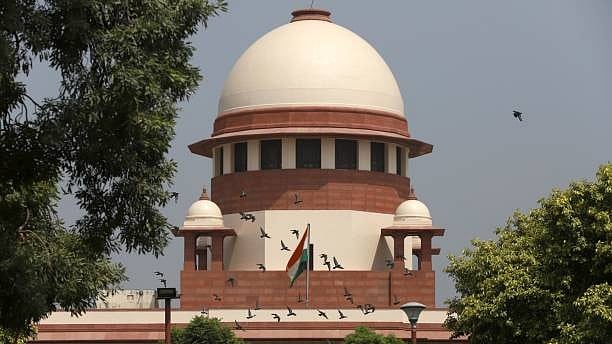
Supreme Court
Credit: iStock Photo
New Delhi: The Supreme Court on Tuesday said answering the presidential reference on fixing timelines for the President and the Governor to clear the Bills passed by the state legislatures would not affect the judgment in the case of Tamil Nadu.
Beginning the hearing on reference made on May 13, 2025, a five-judge bench led by Chief Justice of India B R Gavai sought to allay the apprehensions expressed by Tamil Nadu and Kerala.
“We are not deciding whether the Tamil Nadu judgment is correct or not. We are not deciding that issue. We are only answering the reference made by the President,” the bench said.
The court asked as to what was wrong if the President herself sought views through a Presidential reference.
The court posed the question when the counsel representing the opposition-ruled Tamil Nadu and Kerala governments questioned the very maintainability of the Presidential reference. The bench said it is only acting under the advisory jurisdiction.
The bench said the court will only be expressing its view on the law and would not pronounce a judgment on the Tamil Nadu case. The bench also comprised Justices Surya Kant, Vikram Nath, P S Narasimha and A S Chandurkar.
A bench of Justices J B Pardiwala and R Mahadevan, in a judgment on April 8, 2025 declared that the Tamil Nadu Governor’s decision to withhold assent to 10 bills was "illegal" and "arbitrary" and fixed a three-month timeline for the President to clear the bills.
President Droupadi Murmu, subsequently, exercised powers under Article 143(1) to know from the top court whether timelines could be imposed by judicial orders for the exercise of discretion by the President while dealing with the Bills passed by State Assemblies.
Senior advocate Abhishek Manu Singhvi, for the Tamil Nadu government, contended that the nature of the present case is such that the bench may disturb the decision in the Tamil Nadu case.
The court, however, said the bench will only express its view on the law and would not pronounce a judgment on the Tamil Nadu matter. It also said the bench would only give an opinion, and it would not affect the judgment.
Calling the reference an intra-court appeal, Singhvi claimed that the President's advisory jurisdiction cannot substitute for a review plea. He contended that the Constitution bench was being asked to change the decision, merits and contents in the Tamil Nadu case.
“How is it going to change the decision, already rendered by a division bench? You are proceeding as if the judgment will be automatically annulled. That is not right. Why are you presuming that," the bench asked Singhvi, who said they are testing maintainability.
Senior advocate K K Venugopal, representing the Kerala government, said the apex court had already interpreted similar questions regarding Article 200 of the Constitution, which requires Governors to act “as soon as possible” on state bills, in cases concerning Punjab, Telangana, and Tamil Nadu.
Venugopal contended that for the first time, in the Tamil Nadu case, a deadline was fixed for the assent of Bills passed by the assembly, and emphasized that once judgments cover the field, a fresh presidential reference cannot be entertained.Venugopal insisted that the Centre should have sought a formal review instead of invoking Article 143 to seek a reference by the President.
The bench, however, asked him, “Show us one judgment where in a division bench, a reference is not tenable. We are not deciding the issue whether Tamil Nadu is correct or not…”.
Attorney General R Venkataramani opposed the submissions of both the Kerala and Tamil Nadu governments.
In written submission, Solicitor General Tushar Mehta earlier contended that imposing fixed timelines on Governors and the President to act on bills passed by a state assembly would amount to one organ of the government assuming powers not vested in it by the Constitution, and lead to "constitutional disorder".
